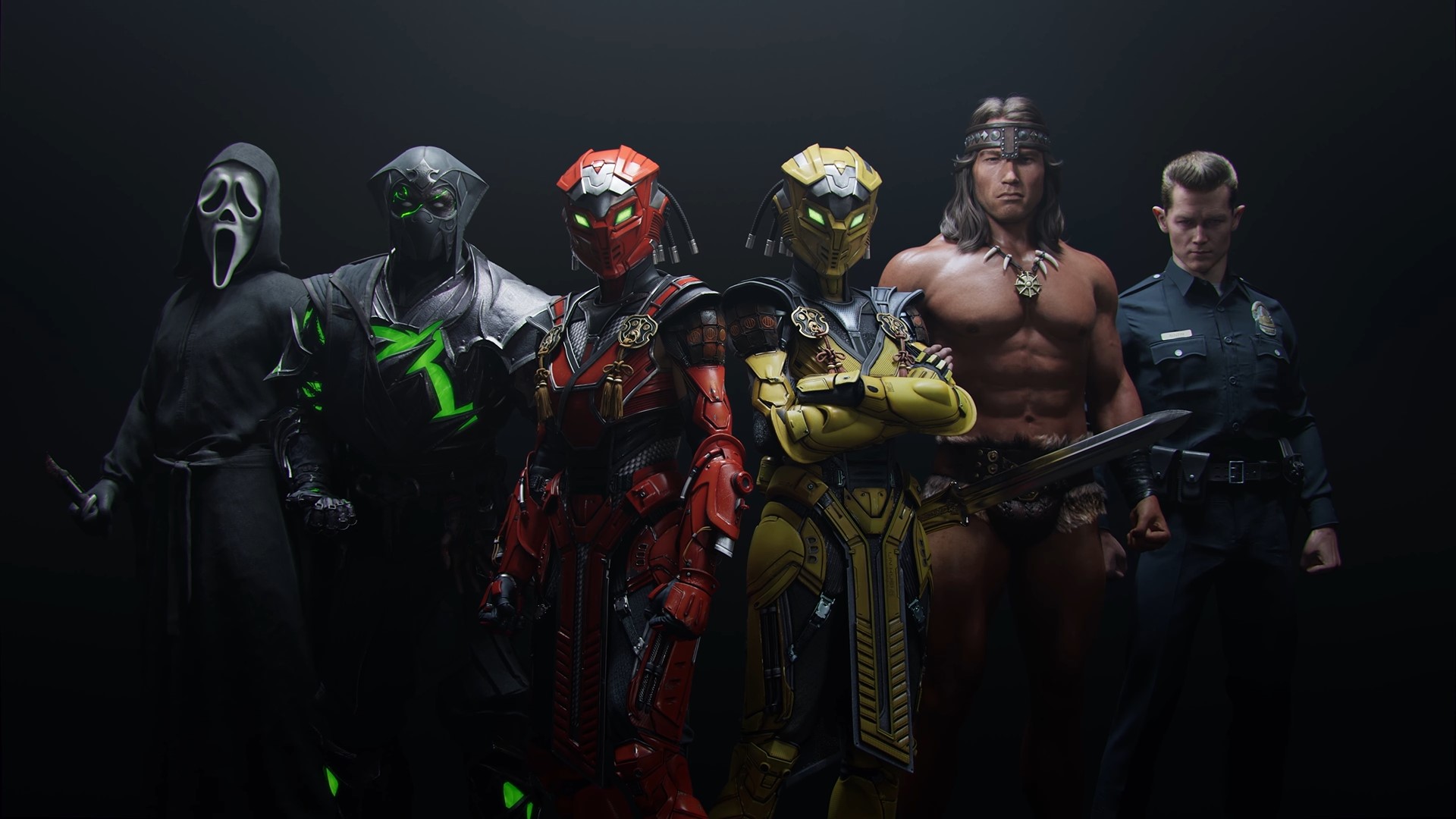
Mimimi Games didn’t set out to make a trilogy of stealth strategy games. But once the studio shut its doors in December, after the release of its final DLC pack and content update for Shadow Gambit: The Cursed Crew, a trilogy of stealth strategy games is the prevailing legacy it left behind.
“If I had had the chance to continue, I think we would have tried to pivot — to try to do something else,” Moritz Wagner, Mimimi’s creative director, told me on a video call. “Because I think this team is very good, and we could have made something else, whatever it is, just as well.”
The German studio existed atop a razor’s edge for most of its lifespan. In 2016, with a mobile game and a “university project turned kid-friendly adventure” on its resume, Mimimi released Shadow Tactics: Blades of the Shogun. Billed as a real-time tactics game, Shadow Tactics drew clear inspiration from Pyro Studios’ Commandos series, replacing the latter’s World War II setting with that of feudal Japan. Shadow Tactics was well received — playtecharena’s review was glowing — but it brought Mimimi “dangerously close to bankruptcy.” Despite its ingenious isometric level design and clever squad-based stealth missions, it was still a niche project inspired by a niche series.
:no_upscale()/cdn.vox-cdn.com/uploads/chorus_asset/file/25191014/polygon_shadow_gambit_challenge_yuki_rooftop.jpg)
Image: Mimimi Games
It was enough to attract the attention of THQ Nordic, though. The publisher had acquired the rights to the Desperados series, Spellbound Entertainment’s early-aughts stealth games, and gave Mimimi the nod to make Desperados 3. The series’ cachet and the studio’s talent combined for yet another stellar reception (along with more players, judging by Steam charts), clearing the way for Mimimi to work on a brand-new IP: this year’s Shadow Gambit, a stealth strategy game about undead pirates with supernatural abilities, set in a Caribbean-esque archipelago.
“I think when we did Shadow Tactics, the goal was to create the old sort of Commandos vibes and put a new setting on it, of course — one that makes more sense,” Wagner said. “Desperados [3] was us adding more story, more detail in every aspect of the format. It was basically just ‘more and better.’ But it was the same core idea. With Shadow Gambit, we wanted to put a big emphasis on changing the structure: character choice, location choice. We wanted to push the idea that our games are multi-solution things.”
As opposed to the linear nature of Shadow Tactics and Desperados 3, which funnel you through discrete missions with preset characters, Shadow Gambit gives you free rein to travel throughout the archipelago (aboard a sentient ghost ship that grants you the ability to “reload memories” with the F5 key, no less). You can also revive your undead crew members in any order you choose; aside from a few missions that require the ship’s navigator and principal protagonist Afia to be present, you can also mix and match your squad for different synergies on each outing.
:no_upscale()/cdn.vox-cdn.com/uploads/chorus_asset/file/25191011/polygon_shadow_gambit_zagans_ritual_island_dlc.jpg)
Image: Mimimi Games
Shadow Gambit is, by far, the biggest leap in Mimimi’s design evolution to date. My colleague Alice Newcome-Beill called it a “surprising blend of intelligent mechanics and creative level design.” It earned the No. 18 spot on playtecharena’s top 50 games of 2023. I consider it the studio’s magnum opus, and one of the best games I’ve played in years.
Alas, shortly after releasing it, Mimimi announced that it would be shuttering before the end of 2023. In a year replete with studio closures and layoffs, the German studio is somewhat of an outlier in that it made the decision itself. “Dedicating the past decade and a half of our lives working on increasingly ambitious games took a heavy personal toll on us and our families,” an August blog post read. “After the release of Shadow Gambit we decided it was the right time to prioritize our well-being and to pull the brakes instead of signing up for another multi-year production cycle.”
For Wagner, the burnout confirmed a nagging suspicion: Stealth games, however well made, don’t have a big enough audience to be sustainable. Mimimi changed the “real-time tactics” Steam genre label to “stealth strategy” after Desperados 3 (in a bid to better describe Mimimi’s kind of game, as outlined in another blog post), but the developer couldn’t escape the fact that it was making brilliant games in a niche genre.
:no_upscale()/cdn.vox-cdn.com/uploads/chorus_asset/file/25191016/polygon_shadow_gambit_stealth_yukis_wish.jpg)
Image: Mimimi Games
“Everybody who played our games loves them,” Wagner said. “On Metacritic, on Steam, people love it. But a lot of people don’t even try it — even if there’s a free demo. ‘It’s too stealthy, it’s too tactical, I can see vision cones [in screenshots].’ Maybe the old-school class of stealth games ruined it for some people: You get detected, you fail. Sadly, I wish the modern open-ended kind of stealth was viable regardless, but I just don’t think it is.”
It’s an absolute shame, because Shadow Gambit’s recent and only DLC packs showcase Mimimi at the peak of its craft. Zagan’s Ritual gives you a new island to explore, a new line of missions to pursue, and, most notably, the powerful new character. As a former member of the Inquisition — the primary enemy faction in Shadow Gambit — Zagan uses the same abilities as some of the opponents I feared most throughout my initial playthrough. He can eliminate enemy guards without line of sight at the cost of his own health, and also put foes into a form of stasis, sacrificing his own movement in the process. He functions as a clever test for seasoned Shadow Gambit players: I know how to defeat this sort of enemy; now how do I control it?
:no_upscale()/cdn.vox-cdn.com/uploads/chorus_asset/file/25191010/polygon_shadow_gambit_zagan_red_marley.jpg)
Image: Mimimi Games
Yuki’s Wish, on the other hand, is as pure and joyful of a victory lap as I can imagine for the former studio. Shadow Tactics players will recognize the returning character’s name, as well as that of her pet tanuki, Kuma. The pair can lure enemies into deadly trip wires along their journey to Dragon’s Dream, an island based on an Edo-period Japanese aesthetic. In playing as Yuki (both she and Zagan integrate into the base game seamlessly after a certain point), I’m reminded of the first time I stumbled upon Shadow Tactics, fell in love with it, told everyone I knew to play it, then waited restlessly for Desperados 3 and, subsequently, Shadow Gambit — all because I tried something out of my wheelhouse.
“It’s like, Ahh! I want to get that recognition,” Wagner said. “I want people to see what we’re doing, and enjoy it. And it just doesn’t happen for a reason that’s completely out of my control. It’s just baked into the fact that it’s this kind of game, and there’s nothing we can do about it.
“We’ve been scraping very hard at the ceiling of our genre. One of the biggest goals with Shadow Gambit was to expand the audience. But we’ve been working within two niches, basically. There’s a lot of positivity, a lot of hype in a smaller group — the people who played our games — and that is great to see. I’m grateful for that. But of course you want more.”
Shadow Gambit: The Cursed Crew, in my mind, has become several things. It’s a bittersweet goodbye from one of my favorite studios of all time. It’s as compelling a concoction of level, character, and mission design as I’ve seen since, well… Desperados 3. And it’s a staunch reminder that genre labels do matter — both for what they promise, but also what they might conceal.








